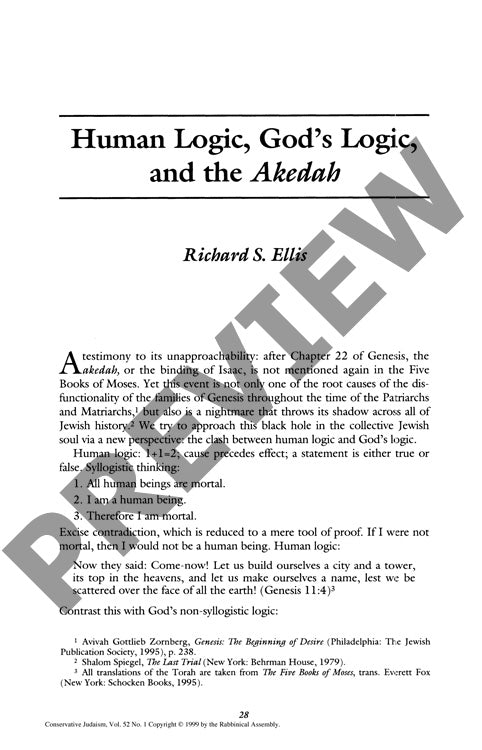Human Logic Gods Logic and the Akedah
Couldn't load pickup availability
The binding of Isaac stands as one of Judaism's most challenging theological paradoxes: how could Abraham reconcile God's promise of offspring through Isaac with the divine command to sacrifice him? Through close reading of Genesis 17-25, Hebrew textual analysis, and examination of rabbinical sources including Rashi and midrashic commentary, a stark contrast emerges between human logical systems and divine imperatives that transcend rational understanding. Abraham's spiritual journey transforms from logical disputation, as witnessed in the Sodom narrative, to complete surrender of rational frameworks during his three-day journey to Mount Moriah. While Abraham ultimately achieves a profound spiritual enlightenment by abandoning human logic for divine perspective, this transformation extracts a devastating personal cost - the permanent dissolution of his immediate family bonds and estrangement from both sons. The text's deliberate silence regarding Abraham's internal experience forces readers across millennia to grapple with fundamental questions about divine justice, human agency, and whether transcendent faith necessarily demands the sacrifice of human relationships and rational understanding. The analysis reveals that human logic, with its reliance on syllogistic reasoning and non-contradiction principles, proves inadequate when confronted with divine paradox, suggesting that genuine spiritual enlightenment may require moving beyond the boundaries of human rationality.

More Information
-
Physical Description
-
Publication Information
Published 1999
ISBN
-
Publication Credits
Richard Ellis

